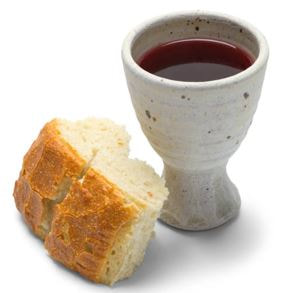|
As we read through the Gospels, we see examples of persons who had major obstacles in their lives that blinded them from seeing the benefits of following Jesus and becoming his disciple. Simon Peter was a very successful fisherman. It only took one encounter with Jesus, when they invited Him to go fishing with them, and they caught the largest number of fish which totally changed their history of fishing. The result was that “they left everything and followed Him” (Luke 5:11).
The story does not end so well with the young man who asked Jesus, “what good deed must I do to have eternal life?” (Matthew 19:16). After some conversation over keeping the Law of Moses, which the young man said he had done, Jesus tells him; “If you would be perfect, go, sell what you possess and give to the poor, and you will have treasure in heaven, and come follow Me” (19:21). Was the real issue the young man’s possessions? No! It was personal surrender of his life to Jesus. The “come follow Me” part was just too much, considering his “great possessions.” If we really want to follow Jesus and be a true disciple who makes other disciples, we must be willing for the “follow Me” part of His requirement. It will be a learning process, but it begins with giving Him everything. Jesus told Peter and Andrew, “And he said to them, “Follow me, and I will make you fishers of men”” (Matthew 4:19). Becoming an effective, productive, multiplying, fruitful disciple, begins with a close walk with Jesus. You may need to remove some obstacles so you NEVER LOSE SIGHT OF HIM!
0 Comments
 In Luke 14:28-33, Jesus draws some comparisons between common decisions people make in every-day life and the decision to be a disciple that follows Him. Here are the human illustrations: · Building a tower requires first sitting down and counting the cost. · A king going to war against another king – how large an army will he need to succeed? Then Jesus makes this profound statement: “So therefore, any one of you who does not renounce all that he has cannot be my disciple” (Luke 14:33). Notice the word “renounce” which means “giving up, setting aside everything or to part with” all my possessions. What does this really mean? We know from many Scriptures that Jesus was not saying that possessions could not be part of the Christian’s life, but I must release my right to control them and myself to Him, my Lord and Teacher. The disciple surrenders everything he is and has to be under Jesus’ control. William Barclay tells the story of someone talking to a great scholar about a younger man. He said, “So and so tells me that he was one of your students.” The teacher answered, “He may have attended my lectures, but he was not one of my students.” There is a world of difference between attending lectures and being a student. It is one of the supreme handicaps of the Church. There are so many distant followers of Jesus and so few real disciples.” We must not confuse attending church services or Bible studies with being a true disciple who has “renounced” everything for obedience to Jesus. Will you bow in surrender to His loving authority?  Jesus taught that a true disciple must “bear his own cross and come after Me.” He was not referring to a physical cross like the one on which He died for us. That cross was forced on Jesus by the Romans as their worst form of death. The cross in Luke 14:27 is one that a disciple takes up voluntarily and chooses to bear for the sake of Christ. What is your “cross”? If we are determined to truly live for Christ and follow Him faithfully, we will receive the same Satanic opposition and hatred He received. To be Christ-like in the true sense of being His disciple, will mean misunderstanding, false accusations, distortion of our witness, and enduring circumstances that are painful and often do not make sense. Bearing your cross will often seem like a very lonely road with very few to encourage and share your burden. This means that you have ONE objective; to follow Jesus whatever the cost, keeping Him as your single focus in life and ministry. Let’s read these words of Jesus again; “Whoever does not bear his own cross and come after Me cannot be My disciple.” God has chosen a path/cross for me that is different from every other believer and it is very important that I accept that cross as being His specific will for me. At the same time, every disciple is required to do the same thing even though their cross is different from everyone else – “come after” Jesus. The example and goal of every disciple is the same – JESUS! What if I do not like my cross? What if I want to copy someone else’s success? What if I get tired of “bearing my cross”? THEN YOU CANNOT BE JESUS’ DISCIPLE! It is that simple. When our cross becomes too hard, too heavy or too difficult, Jesus will tell you the same thing He told Paul; “My grace is sufficient (enough) for you, for My power is made perfect in weakness” (2 Corinthians 12:9). Lean on His grace to bear YOUR CROSS and be a true disciple.  Everything we do in life has a cost and reward. Sometimes the reward is positive and sometimes very negative. More about the reward tomorrow. “Now great crowds accompanied Him [Jesus], and He turned and said to them, “If anyone comes to Me and does not hate his own father and mother and wife and children and brothers and sisters, yes, and even his own life, he cannot be My disciple” (Luke 14:25–27). Let’s unpack this statement so we can take away from these verses the meaning as it applies to our lives today. · Those in the crowd were not Jesus’ disciples, but He clarifies the requirement for a disciple. · Coming to Jesus means becoming a disciple, a follower and learner. · A disciple places every loyalty in the world second to our commitment to Jesus. · This description of loyalty makes love for all human relationships (even those that are God-given) seem as hate in comparison to our love for Jesus. He alone is supreme in our love! · Perhaps the greater test is whether we hate our lives in comparison to our love for Jesus. · If we cannot pass both tests, WE CANNOT BE JESUS’ DISCIPLE! The priority of love is hard for us to face. It is not a matter of having divided loyalties, but when Jesus is our supreme love, every other love in a proper relationship will take character and quality from our love for Jesus. THIS IS THE MEANING OF A TRUE DISCIPLE. What are you living for? What do you value above anything else?
“Then Jesus told his disciples, “If anyone would come after me, let him deny himself and take up his cross and follow me. For whoever would save his life will lose it, but whoever loses his life for my sake will find it” (Matthew 16:24–25; Mark 8:35; Luke 9:24). Often we go to great lengths to preserve ourselves from danger, persecution and suffering. Just so I am understood, I am not referring to the prudent care of our bodies and acting as good stewards of what God has given us. What weighs heavy on my heart is avoiding being fully obedient to the clear commands of Scripture in order to protect ourselves from ‘what might happen,’ even death. Listen to the comment on those who “accepted” death rather than compromise their faith and love for God. “Some were tortured, refusing to accept release, so that they might rise again to a better life. Others suffered mocking and flogging, and even chains and imprisonment. They were stoned, they were sawn in two, they were killed with the sword. They went about in skins of sheep and goats, destitute, afflicted, mistreated--of whom the world was not worthy—wandering about in deserts and mountains, and in dens and caves of the earth” (Hebrews 11:35–38). These are the “great…cloud of witnesses” who cheer us to “run with endurance the race that is set before us, looking to Jesus, the founder and perfecter of our faith” (12:1-2). For Old Testament saints, it was their faith in God who revealed Himself to them that was their motivation. For us, it must be a deep love for Jesus and all He stands for. What will you do with your life? There are times when I feel so inadequate in my worship, and my words seem so little and do not express what I want to express in thankfulness to God. As I struggled with these emotions this morning, I turned to David for some answers.
“I will give thanks to the Lord with my whole heart; I will recount all of your wonderful deeds” (Psalm 9:1). “I give thanks to you, O Lord my God, with my whole heart, and I will glorify your name forever” (Psalm 86:12). “Praise the Lord! I will give thanks to the Lord with my whole heart, in the company of the upright, in the congregation” (Psalm 111:1). “I give you thanks, O Lord, with my whole heart; before the gods I sing your praise” (Psalm 138:1). Notice there are certain activities that go along with giving thanks to the Lord which David felt were very important to give proper expression to thanks. One of these was recounting all the wonderful things God had done, not just for him, but for all God’s people. We tend to forget which makes “recounting” important. We must use our thanking the Lord to also glorify His name forever. Another activity is gathering with others to thank the Lord together. There is something about praising the Lord with others that multiplies our worship. This is the Spirit’s work. One final note; the word “whole” means “complete or totally given over to an object” of worship. What does the Lord deserve from us? Give Him your “everything”!  Many things the Christian Church does here on earth is only “until He (Christ) comes” (1 Corinthians 11:26). The context of this phrase is the Lord’s Supper, which Jesus instituted and commanded the disciples to “Do this in remembrance of Me” (Luke 22:19) and which Paul reminded the church in Corinth the importance of maintaining. Jesus or Paul never prescribed how often remembrance of Jesus around bread and a cup should take place. Having said that, let me speak to your heart. It is my conviction that there are two things missing with most of us related to this question. The most important issue is love for the Person. Jesus often challenged His disciples as to whether He was first in their love; “Whoever loves father or mother more than Me is not worthy of Me, and whoever loves son or daughter more than Me is not worthy of Me” (Matthew 10:37; also John 21:15-19). Even the dearest human relations were not to come before the Lord. We can take this principle and apply it to anything in life. Does anything come before the Lord Jesus? The word “worthy” points to all other persons and things being given their proper value in comparison to that which has the highest value above everything else in the universe. If we give Jesus the place in our minds and hearts that corresponds to His value, then nothing will come before Him. If we really believe He is “worthy” of this place, then why would we not spend time remembering Him and what He has done for God and for us? The second point in this issue is whether we as the Church and believers really accept the place God has given to Jesus? “Therefore, God has highly exalted him and bestowed on him the name that is above every name” (Philippians 2:9). If we want to give Jesus the same exalted place in our hearts, then remembering Him often will be our automatic desire and practice.  I am certain that none of the guests were aware of what was about to take place. They had returned to Jerusalem from parts of Judea and Galilee because the traditional time for celebrating the Feast of Unleavened Bread was taking place just before the Passover. As the disciples and Jesus came into the city, He asked them to go ahead of Him to make preparations for the Passover. They knew what to do, but they had no idea how significant this Passover would be. As they began eating the meal, Jesus tells them; “I have earnestly desired to eat this Passover with you before I suffer” (Luke 22:15). The circumstances and timing of this meal had more meaning than anyone could imagine. It was the end of Jesus’ public ministry. Though He had often warned the disciples about His impending trial, suffering, death and resurrection, they still were not making the connections with Old Testament prophecies and His words with current events. This Passover meal would never be forgotten. Taking bread and a Seder cup, Jesus began a new tradition, based on His impending sacrifice, so that the disciples and every disciple after them would remember Him through the bread, His body, and the cup, the new covenant in His blood. It was simple, but profound because it centered their remembrance (and ours) on Jesus, NOTHING ELSE. It must not be just a ritual or performance, but moments of abandoned love and appreciation for His Person; who He is and what He has done for us. I fear this remembrance has evolved in many churches into a ritual with little meaning and application to the heart and life. It is my conviction that when the Church renews its understanding of God’s purpose for the Church, we will also renew our love for the Lord’s Supper. “Do this in remembrance of Me” will no longer be just words in the Bible, but a living command to represent and proclaim Him to the world (22:19, also 1 Corinthians 11:26).  “Prisca and Aquila, my fellow workers in Christ Jesus, who risked their necks for my life, to whom not only I give thanks but all the churches of the Gentiles give thanks as well” (Romans 16:3–4). Many in the United States will be gathering around meals today and this weekend to express thanks for so many things that fill our memories with gratitude; persons who have special meaning to us. Wherever you live on this planet called Earth, I encourage you to take time alone and with others around a meal to recall those who have invested with you in what is eternal. THANK THE LORD FOR THEM! Paul did that and mentions Prisca and Aquila at the beginning of a long list of those who lived in Rome or had moved there ahead of him. Notice why he remembers them “who risked their necks for my life.” Those are the kind of people we cannot forget. I had gone through about thirteen years of spiritual crisis after we were married and was struggling to find a solid biblical foundation for life and ministry. In His sovereign ways, God brought a dear brother, a man of God, and a spiritual father into our lives. He never sought personal gain from his time and investment in me. He sacrificed time to listen, give comfort, and pour in reassurance when I felt dry and empty. Though I needed correction and admonition, it was done in love. His gentle spirit and faithful walk with the Lord inspired my heart to follow his example. Norm is and always will be my mentor, because he redirected my life to please my Lord and not man. Who are you thankful for? Who has invested in your life like Paul did into Timothy and many others? Who did God bring into your life just at the right time to give your life spiritual direction and preserve you from wandering away from the Lord? Who lived the example of Christ so you could see in living color what God wanted you to be? Have a meal with others and tell your story.  As we continue to focus our attention on the attitude of thanksgiving, my thoughts turn to those who risked everything so we might have the gospel and that it might spread. John the Baptist did not live to see the day of the Spirit, but he was excited to prepare the way for Jesus who in turn prepared the way for the Spirit to be sent on the Day of Pentecost so the gospel would be proclaimed to every people group around the world. In speaking to the Jews about His own authority, Jesus refers to the witness of John with great appreciation; “There is another who bears witness about me, and I know that the testimony that he bears about me is true. You sent to John, and he has borne witness to the truth…He was a burning and shining lamp, and you were willing to rejoice for a while in his light” (John 5:32–35). Jesus was very thankful for the ministry of John the Baptist because he prepared the way for Jesus. As was the life of Jesus, John’s life was cut short, but both of their missions were fulfilled. This was also true of Stephen in Acts 7. His boldness in proclaiming the glory of God down through the centuries of Israel’s history resulted in his death. To the church in Jerusalem, his death seemed tragic. Yet, how thankful we must be for this martyr for Christ. His faithfulness pushed the gospel out of Jerusalem and “those who were scattered went about preaching the Word” (Acts 8:4). He fulfilled God’s purpose for his life and it resulted in fruitful expansion of the gospel. These are the beginning of a long line of martyrs who had one goal; the gospel of Jesus Christ for all people. Are you thankful for those who did not count their lives of any value, not precious to themselves, “if only I may finish my course and the ministry that I received from the Lord Jesus, to testify to the gospel of the grace of God” (20:24). Are you willing to be numbered among them? |
Archives
December 2023
Link To Our Old Blog:
|

 RSS Feed
RSS Feed